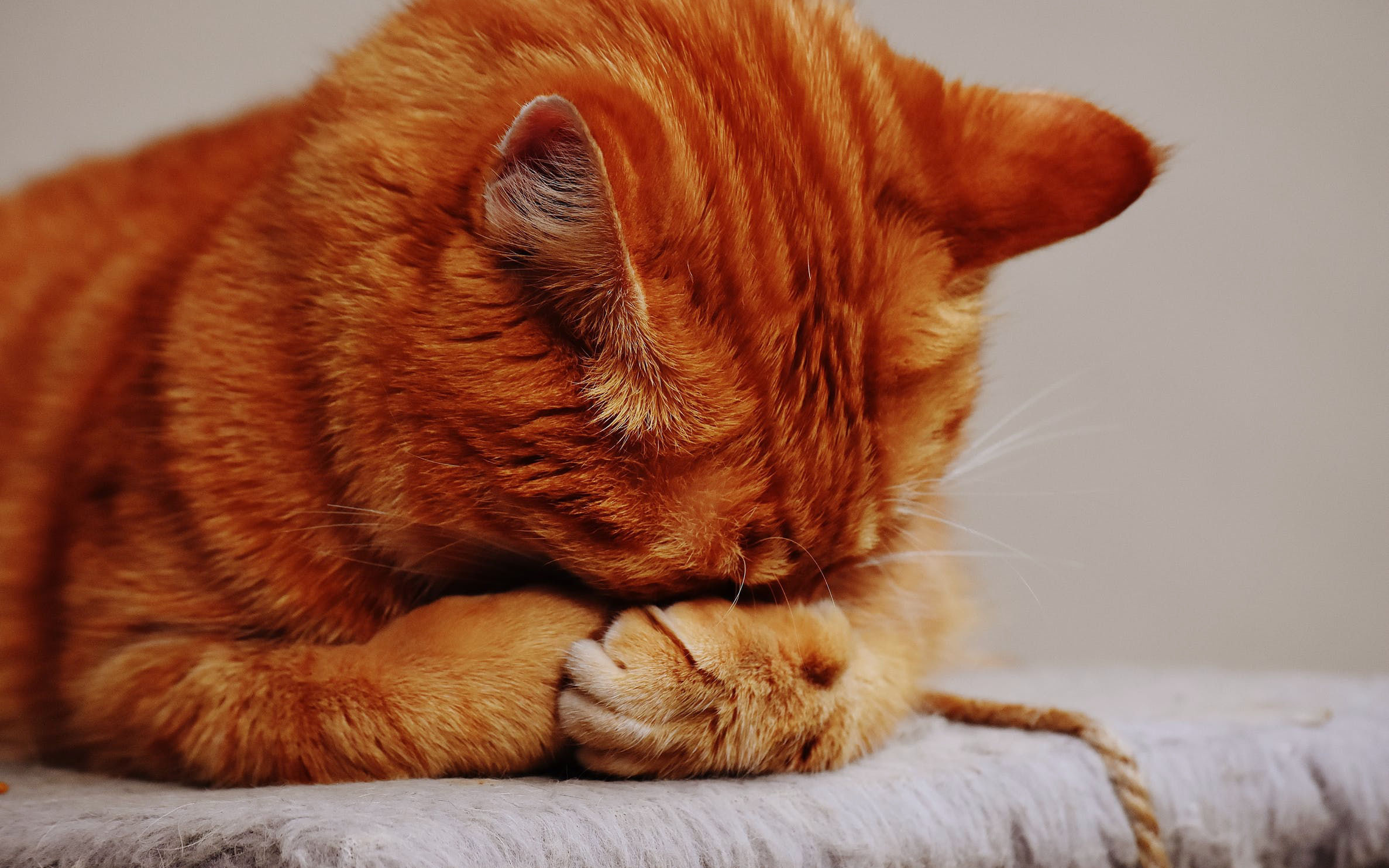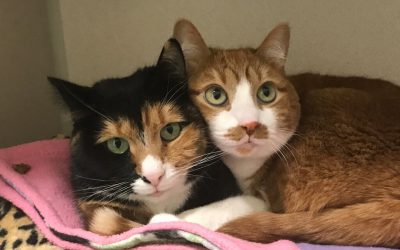Dear Ms. Kitty,
A good friend recently had to rush her 6-year-old cat to the ER when she returned home and found him unresponsive. They did emergency surgery and after a week of intensive care the cat died. She didn’t even know her cat was sick! Is there a way to avoid a stressful, costly and unexpected crisis like this with my cat?
Fearful for my cat
Dear Fearful,
I’m very sorry to hear about your friend’s loss. Cats can become extremely ill before they show obvious symptoms.
Cats are masters of hiding pain and illness. When injured or in pain, a wildcat will find a place to hide and stay quiet to avoid attracting unwanted attention from predators.
Even when living in your safe home, these instincts often cause your domestic cats to mask the signs they are not feeling well. It can be devastating to find that you were not aware of an issue until it is far advanced.
This doesn’t mean that you can’t monitor your cats’ health. You just need to be observant and recognize their needs early. By addressing these changes early, you have more options for successful treatment.
When you are around your cat all the time, subtle changes can stay under the radar. There are several easy ways that you can monitor wellness and recognize changes in your cat before they become a crisis.
These steps can become part of your regular routine. Once you start tracking them, you may start to recognize patterns to communicate to your veterinarian. Together you can determine if additional diagnostics or treatments are required.
- Cat Scans: Run your hands over your cat and look for swelling, bumps, tenderness, ungroomed or overgroomed spots, discharge from eyes or nose, pale gums.
- Goldilocks Dilemma: Not too fat and not too thin, just right. Track changes in weight to observe undesired trends early. You may not realize that your cats have gained or lost a few ounces, especially if they have long fluffy coats, but the scale will alert you. Adjust the frequency of your weighing to the needs of your cat. Healthy cats maintain very consistent weights, unless they are getting the wrong diet and gaining weight. If your cat starts to lose weight it is a red flag and you should consider a vet visit to find the reason. On the other hand, too many cats are obese and this can lead to health issues. If you want to help your cat lose weight, it is very important to go slowly so serious illness doesn’t occur. Your cat’s weight is objective data for you and your vet. It can indicate a need for further action, like adjusting diets, boosting immunity, scheduling diagnostics tests or monitoring more closely.
- Creatures of Habit: Cats tend to follow a predictable routine, so when something changes you should pay attention. Examples are: not using favorite beds, withdrawing, becoming more demanding, sleeping more, changes in vocalizations, aggression and not using litterbox.
- Ins and Outs: Changes in intake, like appetite changes, not eating, difficulty drinking, food falling out of mouth, drooling, bad breath, vomiting can indicate issues.Changes in output can also be your cat telling you something is wrong, like increased thirst, excessive urine, frequent litter box visits, straining to pee or poop, blood in urine or stool, or avoiding the litterbox.
- A Picture Is Worth 1000 Words: Take videos and photos to document abnormal sounds, movements, growths or discharges. This will help you communicate with your vet and evaluate changes over time.Keep up-to-date health records, first aid supplies and list of emergency veterinary clinics. Develop a plan in case an emergency happens.It can be extremely difficult to process information during a crisis. Preplanning may allow you to make clearer decisions about the diagnostics you would consider and the medical cost you could manage.
Tap here for more helpful information:
Association for Pet Obesity Prevention: Help evaluating your cats’ weight and guidelines for weight loss.
Feline Musculoskeletal Pain Index (FMPI): This tool was specifically developed to measure chronic pain in cats.
Feline Grimace Scale: How to tell from your cats’ faces if they are in pain.
Quality of Life Scale for Felines (HHHHHMM): This PDF is valuable when facing end of life decisions and also helpful for monitoring wellness.
Tap here for more Ask Ms Kitty Articles!

Melissa Shandley is one of the founders of Happy Cats Haven, a Cat Behavior Consultant and Cat Care Provider.
shandleym@q.com
719-686-8778




